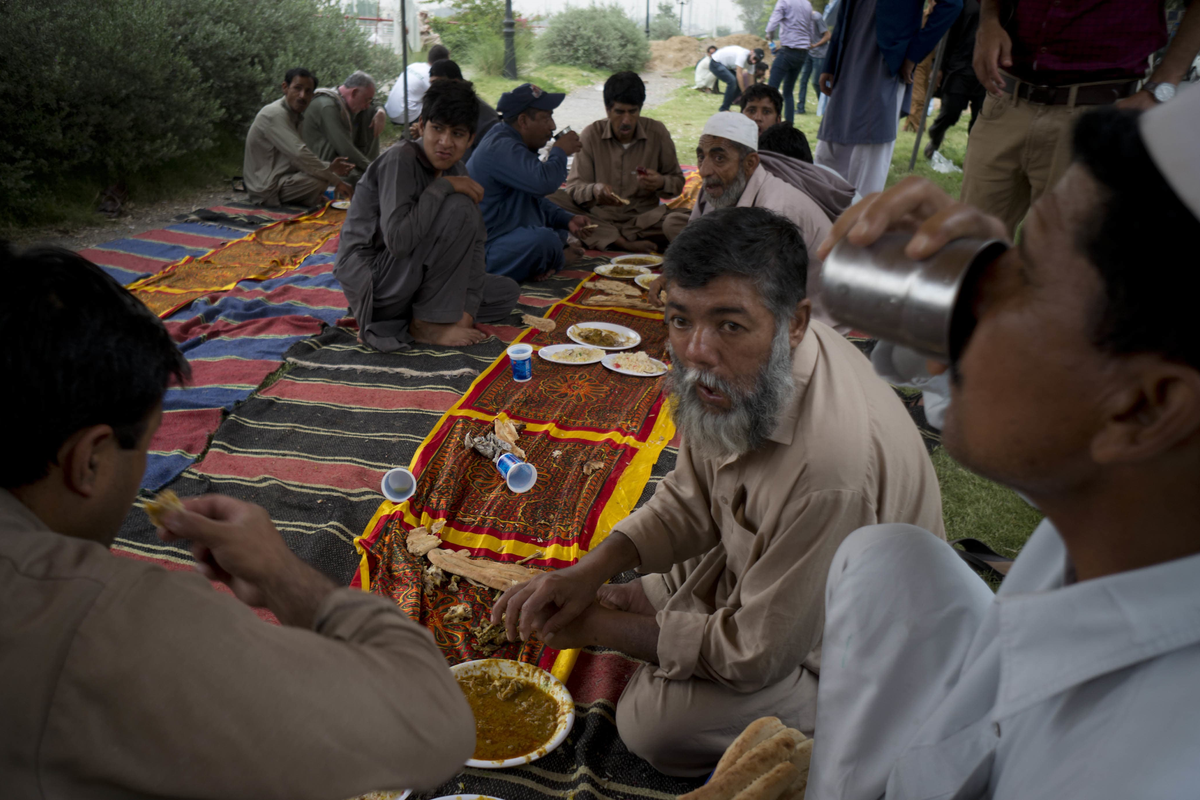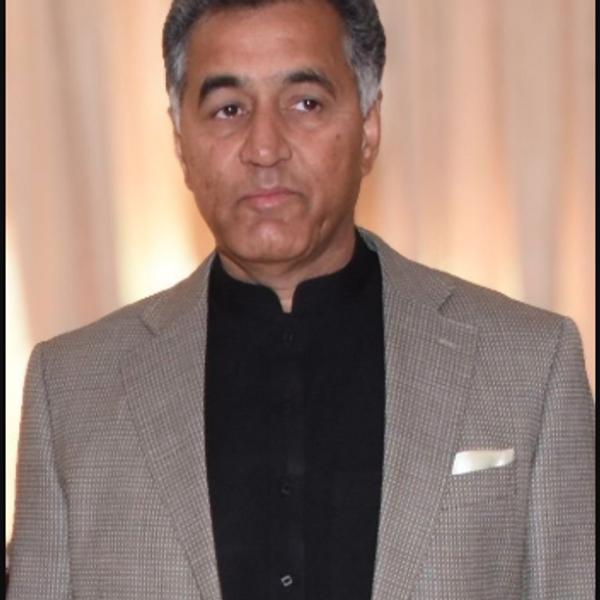Left behind in their own cities as Pakistan’s urban poor fight to survive
For Islamabad’s urban poor, government shelters meant to provide refuge remain scarce, distant and out of reach for those earning nothing in a day

Asma Kundi
Producer, Islamabad
Asma Kundi is a multimedia broadcast journalist with an experience of almost 15 years. Served national and international media industry as reporter, producer and news editor.

Workers share a free roadside meal offered by volunteers on International Labour Day in Islamabad.
AFP
At dawn, when the streets of Pakistan's capital Islamabad are still shaking off the night’s chill, 70-year-old Jamal Khan takes his usual place by the roadside at Peshawar Mor.
His weathered eyes scan each slowing car, searching for a chance - a day’s work, a few hundred rupees, a reason to keep going. But younger, stronger men are picked first. Jamal quietly steps back to the curb and waits again, his frail body slumping under the weight of exhaustion and hope.
With a white beard, a wool cap pulled low and a thin shawl wrapped around his shoulders, Jamal speaks softly but with tears brimming in his eyes.
“I am tired of this life,” he tells Nukta. “I’ve married off my four daughters. My only son struggles to feed his own family. My wife lives with him in a rented room. Every night, she asks me on the phone, ‘Did you find any work today?’ I say no and then she comforts me instead.”
When darkness descends, Jamal waits for the nearby market to close before curling up under a shop’s awning. Dew drips from the eaves, soaking the thin blanket he carries. “I can’t sleep under the open sky anymore,” he says. “My bones ache from the cold.”
A promise unfulfilled
For people like Jamal, the government’s Panahgahs - shelters meant for the homeless - are supposed to offer a lifeline. But in reality, they’re few and far between and even fewer are functional.
Islamabad officially has five shelters, though one stands closed. Two of the remaining are located far from the city center, in Tarnol and Barakahu - miles away from where day laborers gather to find work.
The irony is painful: the shelters meant to help the city’s poorest are located where the poor cannot afford to reach. For a man who earns nothing that day, the bus fare alone makes the journey impossible. And if he somehow manages to get there, there’s still the cost of returning the next morning to search for work again.
Even for those who make it to a Panahgah, the conditions can be grim. During a visit by Nukta, one shelter’s blankets were stained and torn, the hall airless and heavy with the smell of sweat and damp bedding. “We’ve been told not to let the media inside,” a caretaker admitted quietly.
And then there’s the cruelest rule of all: no one can stay for more than three consecutive nights. After that, they must leave - work or no work, old or ill, warm bed or pavement. For elderly men like Jamal, it’s a cycle that rarely ends.
A crisis in plain sight
Jamal’s story is not an exception - it’s the norm.
According to the World Bank’s Global Poverty Update 2025, more than 107 million Pakistanis now live below the poverty line, earning less than PKR 1,200 ($4) a day. Of these, nearly 40 million live in what the Bank classifies as extreme poverty.
And many - perhaps too many - have no roof over their heads. Muslim Aid estimates that 20 million Pakistanis are homeless, roughly 9% of the country’s population.
Some live in makeshift settlements, others in urban slums. In Karachi, more than 40% of residents - around 5.9 million people - live in informal settlements, and nearly 200,000 sleep on the streets each night.
They are the invisible pillars of Pakistan’s cities: men and women who build homes, clean offices, cook food, and drive rickshaws - yet have nowhere to rest when the day ends.
'We were thrown out of the park'
At a charity food stall in Islamabad’s G-8 sector, Nukta met Shamim Bibi, a mother of three from South Punjab. Her husband, once a daily-wage laborer, lost his job months ago.
Family disputes back home keep them from returning. She was feeding her daughters when asked where they sleep. Her voice broke. “We used to sleep in a park,” she said. “But the police came one night, beat us, and threw us out. Now we sleep outside PIMS hospital.”
The family lies on thin mats along the pavement, trying to stay unnoticed until morning. “Sometimes I worry my daughters will fall sick or worse,” she said, tears streaking her face.
Nearby, Naveed, a cook at a charity kitchen, says he too sleeps outdoors - on the veranda of a closed market, shoulder to shoulder with other laborers. “If I rent a room, how will I send money home?” he asked, shrugging.
The unseen citizens
Their stories unfold in the heart of Pakistan’s capital, in a city of ministries, embassies, and luxury cafés. Yet, the lives of Jamal, Shamim, and Naveed remain unseen - shadowed by poverty, bureaucracy, and the indifference of those who pass them by each morning.
For them, home is not a place - it’s a question that rarely finds an answer.
As Jamal pulls his shawl tighter and looks up at the fading lights of Islamabad’s skyline, he sighs. “I built houses for others all my life,” he says, “but never had one of my own.”







Comments
See what people are discussing